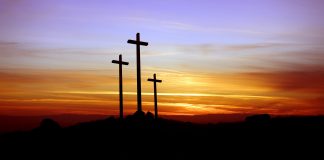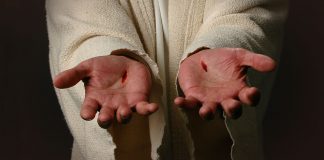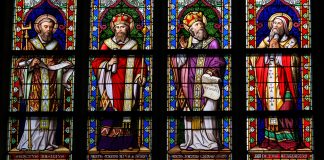Trusting faith
An ordinary wooden chair is a metaphor that’s often used to talk about the key dynamics of faith. But it’s worth exploring further. Perhaps we could describe this as a process of developing the theory of a chair.
Ready for the return of Jesus
"Look, I am coming soon!" (Revelation 22:12) This is a promise whose fulfilment has been awaited by generations of believers who have pinned all their hopes on Jesus's return in glory. But what does "soon" mean? And what should we do to avoid being so preoccupied with the signs that we neglect other essential aspects of our preparation?
God, armed violence and genocide
One of today's dilemmas disputes, dialectically, the complex reality of the Bible and the secular way of looking at the "terror of history": Is God a source of morality superior to humanism, or not?
The lens you see me through
Ask any cinematographer what gets them excited, and I guarantee there’s a fair chance they’ll answer with “lenses”. Having spent many years studying film and many more practising it, I can safely say that I now understand why this is—and it’s probably the first response you’d hear from me if you asked me the same question.
The myth of myths | Is religion just a collection of myths?
The diversity and divergence of religious beliefs clearly indicate that not all religious doctrines and perspectives can be true. Throughout history, there have been vastly different universal religions, each with multiple interpretations and denominations. We have religions, not just “religion.” However, if there is one true religion that respects truth, freedom, and intelligence, the myth of myths collapses.
Is faith reasonable?
Science and faith, as important tools in the knowledge process, are often perceived to be in a tense relationship with each other, because of the fundamentally different worldviews that characterize them. The implications for life’s big questions are obvious—and sufficient to rob someone of the comfort of indifference towards such high-stakes conclusions.
Baby steps to the manger
While Santa Claus, his reindeer, and the various stories that add to the magic of the holidays easily capture children's imaginations, we may find that introducing them to the true story of the birth of Jesus is more difficult—or at least that it's not as easy to present a true story in as attractive a package as the fiction has been wrapped in.
The One who couldn’t live knowing that I was dying
Love stories have the ability to captivate us with the details of an undying beauty, to overshadow the uncertainties about their permanence, to introduce through the front door the hope that one day we will live such a story, which will bear the signature of eternity.
The face that transforms me
Every time I look through the lens of a microscope, I am struck by the realisation that beyond what the naked eye can see lies a universe far deeper and richer.
The counterfeit motif in the apocalyptic scenario
There is a lot of talk today about the fact that things are not what they seem. It is not easy to distinguish between conspiratorially motivated speculation, and the real hidden things of our world—but most of the time the sources make the difference.
John Chrysostom: the man behind the saint
On November 13, the Orthodox Church celebrates one of the most famous church fathers—John Chrysostom, Bishop of Constantinople, whose name is linked to the oldest and most widely used liturgy of the Eastern Church.
So you’re church-shopping…
Have you ever seen the early morning worship programs on television? The packed congregations, the huge church venues, the smooth-talking evangelist who delivers the perfect sermon . . . Church seems to be where the action is. That there are so many new mega-churches popping up all over the world suggests that a lot of people are desperate for spiritual guidance and fellowship....
A visit to Narnia
On the 22nd of November 1963, global attention was captured by the tragic assassination of American President J.F. Kennedy. On the same day, the death of one of the most influential Christians of the 20th century, the British writer and apologist C.S.Lewis, went almost unnoticed.
Looking for a loving father
Fathers are an important part of their children’s lives. Good dads can provide stability, protection and love in a child’s life.
Born again | The unimaginable personal change
Jesus replied, “Very truly I tell you, no one can see the kingdom of God unless they are born again” (John 3:3).


























